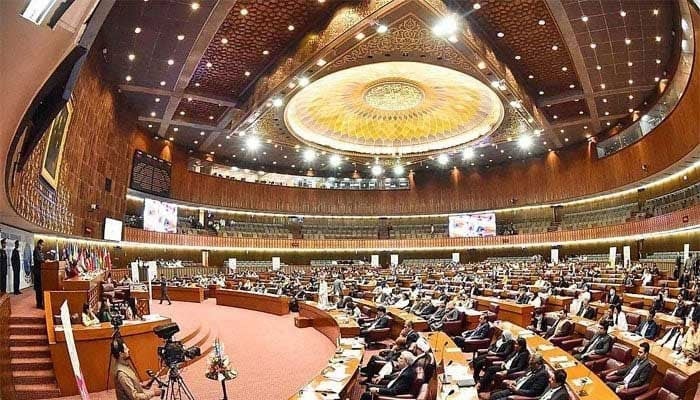POLITICS & POLICY MAKING

Karachi, Pakistan – The Sindh Assembly has successfully passed two important pieces of legislation, the Sindh Universities Amendment Act and the Sindh Civil Courts Ordinance Amendment Bill, after a majority vote. The legislation, however, has sparked strong protests from opposition members, leading to a dramatic session on the floor of the House.
The Sindh Civil Courts Ordinance Amendment Bill, presented by Law and Parliamentary Affairs Minister Ziaul Hassan Lanjar, aims to address the growing backlog of civil cases in Karachi. Lanjar stated that civil cases, which were previously being directly sent to the High Court, would now be handled by civil courts, ensuring quicker and more affordable justice for the public. He emphasized that over 25,000 cases are pending in the Supreme Court, underscoring the need for this change.
Despite the government's justification, opposition members, led by Leader of the Opposition Ali Khursheed, voiced their strong objections. They accused the ruling party of rushing the bill through the assembly without proper consultation or review by the Standing Committee. As the bill was presented for approval, opposition members staged a protest by tearing copies of the bill and raising slogans, turning the session into what some referred to as a “fish market.”
In response, Minister Lanjar defended the bill, asserting that it was designed to benefit ordinary citizens, not any specific individuals or groups. He lamented the opposition's resistance to what he described as a "good law."
The bill was passed with majority support, which means that civil cases in Karachi will now be redirected to civil judges' courts instead of the High Court, a shift aimed at providing more efficient legal proceedings.
In addition, the Sindh Universities Amendment Act was also approved by the assembly. Under the new law, the eligibility criteria for vice-chancellors in Sindh's public universities have been expanded. Any master's degree holder will now be eligible for the role of vice-chancellor, including serving vice-chancellors who wish to continue in the position. However, once appointed, a vice-chancellor must leave the civil service. The new law also stipulates that vice-chancellor candidates must be recommended by a search committee, with the upper age limit set at 62 years.
The opposition protested these amendments by gathering in front of the Speaker’s desk, chanting slogans, and tearing copies of the bill. Despite their protests, the law passed with majority support, marking a significant shift in the governance of Sindh's higher education institutions.
The Speaker of the Sindh Assembly adjourned the session until Monday afternoon after the heated discussions.
The passing of these bills is expected to spark further debates, especially concerning the qualifications and appointment processes for vice-chancellors in Sindh’s universities, as well as the implications of redirecting civil cases from the High Court to lower courts.




